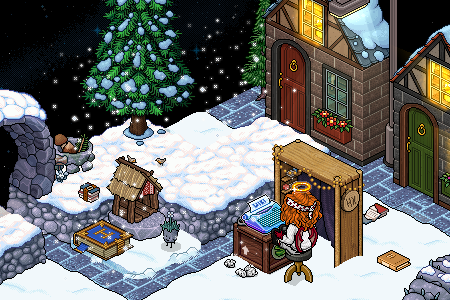http://www.bbc.co.uk/news/uk-11120853The government has confirmed it is planning to scrap the NHS Direct telephone service in England and replace it with an alternative service.
A new 1-1-1 helpline is already being piloted in north-east England.
It was previously reported that the new service may replace NHS Direct, but now the Department of Health has confirmed it will definitely do so.
The move comes as the government curtails public spending, even though it has promised to protect the NHS.
The change will not affect existing NHS helpline services in Scotland and Wales.
Health Secretary Andrew Lansley apparently made a slip when he announced the plan to scrap NHS Direct in England during a hospital visit on Wednesday.
Around 40% of NHS Direct staff are currently trained nurses, whereas the 1-1-1 helpline centres are expected to employ significantly fewer nurses.
Critics claim the change would undermine the quality of the service by reducing the number of qualified nurses answering calls, but Nick Chapman, chief executive of NHS Direct, told the BBC the new helpline would be better and more cost effective than NHS Direct.
He said: "More value for money doesn't necessarily mean that something will be worse. It will be a more seamless service."
He said the 1-1-1 helpline's telephone number would also be easier for callers to remember than the current NHS Direct one.
In June GPs urged the government to get rid of NHS Direct, claiming it is not cost effective.
The plan has provoked an angry reaction from Labour, with shadow health secretary Andy Burnham using it a evidence of what he claims is the government's intention to "dismantle" the NHS.
He said: "The health secretary's statement will stun people across the NHS.
"It is yet more evidence that Andrew Lansley is on a vindictive mission to break up the NHS, ruthlessly dismantling services before alternatives are in place."
Mr Burnham told the BBC that the government had shown "arrogance" and acted in a "cavalier" way by choosing to scrap NHS Direct without consultating the public.
He said the service saved the NHS £200m a year and played a key role in taking pressure off the health service.
He said: "It's been a proven success for a decade and simply to scrap it is no way to run the NHS."
Roughly 14,000 people a day call NHS Direct for medical advice, with the service costing £123m a year to run.
Former Labour health secretary Frank Dobson, who helped establish NHS Direct in 1998, told the BBC the decision to replace the service is "crackers," and said the professionally staffed advice line would be replaced with a "call centre."
His views were echoed by former deputy prime minister, Lord Prescott, who urged the public to sign an online petition he initiated to save the helpline.
He said people would lose trust in using the new service if it was staffed by fewer qualified nurses.
He told the BBC: "It will be a lesser service determined by saving money.
"(The government) told us they would cut the deficit, not the NHS. This is another promise broken."
Dr Peter Carter, chief executive and general secretary of The Royal College of Nursing , said reducing the number of specialist nurses who work on the new helpline was "short-sighted."
He said: "We urge the government to consult fully and look at all the evidence before enacting changes which could leave people without expert advice from trained nurses."
BBC political correspondent Arif Ansari said, however, that NHS Direct has a "mixed record," with critics complaining that its staff were too cautious in their advice to callers.
"There are people who have used NHS Direct and say they did not get a lot from it," he said.
Mr Ansari said GPs were unhappy that many callers were unnecessarily referred to their local hospital when they did not require treatment there.
Mr Chapman said staff involved with the 1-1-1 helpline "pathfinder" in north-east England were currently working with the local ambulance service to handle calls relating to health information or inquiries about medicines.
He said the service will also be tested in the East Midlands and in the East of England, where helpline staff will also assist with nurse assessment, health information and referrals.
"When detailed plans are made to roll out the service nationally, we hope NHS Direct staff will be able to contribute their experience to the new service," he said.
I'm not really surprised by this, especially considering that there have been quite a few occasions were members of the public have used the service and been incorrectly diagnosed and informed with an incorrect prognosis, sometimes leading to death or unnecessary referrals to Emergency Care Practitioners/Ambulance crews and hospitals when they don't require this kind of treatment plan. On the plus side the service is manned mainly by highly trained staff hence the high cost. NHS Direct can also be a vital life saving service, many people will hesitate calling 999 even when they're presenting life threatening symptoms (such as chest pain), this service filters these people out and redirects them to call 999 immediately so obviously saves lifes too.
The new 1-1-1 service which would be replacing the NHS Direct service if plans go ahead is likely to be manned by NHS Ambulance Service call centre staff, not too sure whether this is bad or good as Ambulance call operators are obviously trained to a certain standard but in my experience they rely on making a decision based on what the computer throws at them (they ask preset questions to the patient and the answer is then used to fill out a form on a computer which decides the type of response is required) which doesn't match what the NHS Direct service offered in terms of registered health care professionals answering calls, only plus I can really see is the new number which will be much more easier to remember - oh and cost.
Do you have any views about the NHS Direct service being scrapped or have you previously used the NHS Direct helpline?
Results 1 to 9 of 9
-
 Goverment confirms plan to scrap NHS Direct helpline
Goverment confirms plan to scrap NHS Direct helpline
Last edited by flatface; 28-08-2010 at 10:44 PM.
-

Half of me thinks this is good while the other half says it's bad. The general concept of the helpline was definitely a good idea, as any sort of service like this is useful. But as mentioned, the people behind it weren't trained nor could they really diagnose someone over the phone. Hopefully the new service will provide better advice, though in practice you should probably go to a hospital if you suspect something is very wrong, like finding lumps. The service only really works on suspect minor cases, like headaches, coughs, colds, sorethroats, with the usual (if the problem persists, inform your GP immediately) as many brain tumours and haemorrages(sp?) first appear as headaches and are often over looked.
LEFT
FOM & FOW
If you need me, feel free to PM me here for contact details.
-
28-08-2010, 11:52 PM #3
 Senior Member
Senior Member

- Join Date
- Nov 2007
- Location
- S.W Wales
- Posts
- 1,321
- Tokens
- 154
- Habbo
- transcripts

I presume this is only an English thing since our devolved governments control our health stuff?
Previous Roles
-
29-08-2010, 12:02 AM #4
 Habbox God
Habbox God

- Join Date
- Dec 2006
- Location
- Nottingham
- Posts
- 7,752
- Tokens
- 756
- Habbo
- katie.pricejorda

Aha interesting point, Scotland and Wales have their own "NHS Direct Scotland" and "NHS Direct Wales" (Bet they struggled coming up with those names), presumably this isn't covered in the UK governments cuts as you correctly point out these are in the control of the devolved governments, but they maybe put under pressure to cut the service never the less.
I can't say I've ever used it but my Mum does regularly as manager of a nursing home, seeing as she's a qualified nurse she gets referred straight to a doctor on NHS Direct, however that's not to say that the 1-1-1 service wouldn't be as good.
-
29-08-2010, 01:53 AM #5
 Senior Member
Senior Member

- Join Date
- Nov 2007
- Location
- S.W Wales
- Posts
- 1,321
- Tokens
- 154
- Habbo
- transcripts

Ive used NHS Direct a view times to see GP out of hours service. I know that a lot of Jobs in Wales are dependant on the NHS/public sector in wales especially where I live where there is an NHS Call centre. Oh and I forgot to mention I'm pretty sure in Wales the Ambulance Trust was merged with NHS direct ages ago as I remember my friends mother (who works for NHS direct) saying something about it. They might of gone back however.
Previous Roles
-
31-08-2010, 10:09 PM #6
- Join Date
- Jan 2006
- Location
- Jerez, the Kingdom of Spain
- Country

- Posts
- 29,945
- Tokens
- 4,427
- Habbo
- -:overtaker:-
-

this is stupid, it's just taking everything good out of the nhs really :/
"There are only two important days in your life: the day you are born, and the day you find out why."
Mark Twain
-

thats a real shame, they were a great help for me the other day, and one time their website told me to call an ambulance for someone when i put in their symptoms - good job it told me!
drink up this bottle of yeah
and P A I N T your body on me
-
02-09-2010, 09:29 PM #9
- Join Date
- Jul 2004
- Location
- London
- Posts
- 2,163
- Tokens
- 44
- Habbo
- HabbaJabba

It is a shame that they're scrapping the NHS Direct helpline, I used it once for swine flu symptoms and they were quite helpful!











 Reply With Quote
Reply With Quote






















